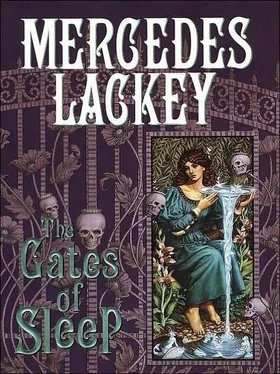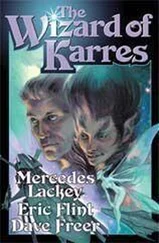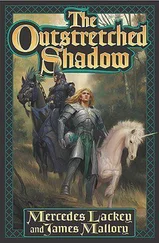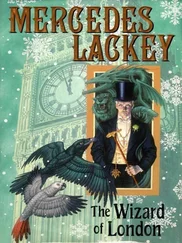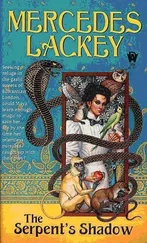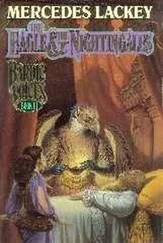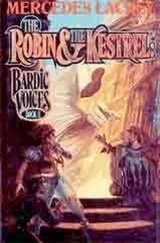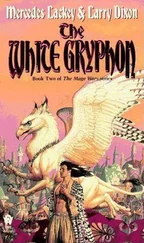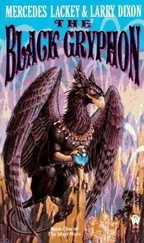So the pony trotted on, through the wet, cold air, along the road that smelled of wet leaves and coal smoke from the trains. Out in the pastures, sheep moved slowly over the grass, heads down, like fat white clouds—or brown-and-white cows raised their heads to stare at them fixedly as they passed. Jackdaws gave their peculiar twanging cry, and flocks of starlings made every sort of call that had ever echoed across the countryside, but mostly just chattered and squeaked.
In a little more than an hour, they reached the town of Holsworthy. It had a main street, it had shops, not the single, all-purpose little grocers, dry goods, and post office run by Peter Hunter and his wife Rosie. It even had a town square with a fountain in it, which had a practical purpose rather than an ornamental one. It provided water for anyone who didn’t have it in their house, and for man and beast on the street.
Cobblestone streets led off the main road, with the houses and shop buildings clustering closely together, huddling together like a flock of chickens in a roost at night. Marina had been here before, usually twice or three times in a year. There was an annual wool fair, for instance, that they never missed if they could help it. Uncle Sebastian ordered some of his artistic supplies here from the stationer, and Uncle Thomas some of the exotic woods he used to make inlays. This was where Aunt Margherita got her special tapestry wool as well as her embroidery silks.
Of course, there were things that could not be bought in Holsworthy; for those, Sebastian or Thomas went to Plymouth, or even to London, perhaps once every two years.
“While we’re here, oughtn’t we to do other Christmas shopping, especially since Uncle Sebastian and Uncle Thomas aren’t with us?” Marina asked, “I wanted to get them books, and there’s a lovely bookshop.”
“Exactly what I had thought.” Margherita pulled the pony up to let a farm cart cross in front of her, then reined him toward the fountain. The pony, nothing loath, went straight for the basin and buried his nose in the water. Margherita and Marina got down out of the cart, and Margherita led the pony and cart to the single inn in town. It also had a stable, and the pony could wait there in comfort and safety while they did their shopping.
The sign on the shop and in the window read, “Madame Deremiere, Modiste.” Now there was no Madam Deremiere, and had not been within the memory of anyone living in Holsworthy. Probably the lady in question had been an asylum seeker from the Great Revolution, or perhaps Napoleon. The current seamstress (also, by courtesy, called “Madame”) was the apprentice of her apprentice, at the very least.
The first task before them, once the greetings and mandatory cup of tea had been disposed of, was the selection of material—and here, sadly, the selection was definitely not what it would have been in Plymouth. There was no emerald wool like that of the suit that Marina had coveted. The choice of fabric was, frankly, limited to the sort of thing that the well-to-do yeoman farmer’s wife or merchant’s wife would want, which tended to either the dull or the flamboyant.
There was, however, a wonderful soft brown wool plush that Marina could see Margherita had fallen in love with. She resolved the moment that her aunt’s back was turned to purchase it and hide it in the back of the cart. In the colors that she preferred, there was a green velvet that was both utterly impractical and far too expensive, a pale green linen that was too light for a winter suit and an olive green wool that had too much yellow in it. She was about to give up, when Margherita said, “But what about gray? Something soft, though, like that brown plush. Something with a firm hand, but a soft texture.”
“I do have some gray woolens like that; I ordered them thinking that I might convince some of the ladies to commission me to tailor some little boys’ suits, but nothing came of it,” the seamstress replied, and went to the rear of her establishment.
Of the three choices, there was a woolen in a dove gray that Marina loved the moment she touched it. It was soft and weighty, a little like fine sueded leather. “Oh, that’s merino, that is,” the woman said. “Lovely stuff. Too dear for Holsworthy, though; if a lady of this town is going to spend that sort of money on a suit for her little boy, she’ll go up a bit and have it done in velvet. Not as much difference in price, you see, when you’re only using two yards or so.”
“And how ‘dear’ would that be?” Margherita asked, settling in for a shrewd session of bargaining—Christmas present or no, she had never bought anything without a stiff bargaining session, and she clearly wasn’t about to break that habit.
In the end, by pointing out a couple of odd places where a moth had gotten to the fabric, and making the case that since the lady was getting not only the price of the fabric but the commission to make it up, Margherita got her price. Then it was time to pick the design. Out came the pattern-books and sketches, and now Margherita excused herself. “I am not going to attempt to influence your choice, my dear,” she said with a smile. “I want you to pick what you want, not what you think I think you should have. And I know I’ll try to influence you, so I’ll return in an hour or so.”
And with that, she picked up her gloves and donned her cloak, and left Marina alone with the seamstress.
“And what do you want, miss?” the seamstress asked, with hint both of humor and just a little apprehension.
“Oh,” Marina paused. “Lady Hastings, a friend of ours, had the most Beautiful suit with a trumpet-skirt and a train—”
She saw the apprehension growing, and knew that her aunt had been right; this seamstress in a small town was not at all confident of her ability to replicate something that a person like Lady Hastings could purchase.
“And I thought, something like that, but much simpler,” she finished. She looked through the first few pages of “walking suits” and “resort dresses” and suddenly her eye alighted on a design that was precisely what she wanted, a jacket fastening to the side instead of down the middle. “Like this!” she said, laying her finger on it, “But without the trimming.”
It was labeled as a “walking suit” as well; it had a lappet collar and a double skirt, and in the sketch, was trimmed quite elegantly and elaborately. But the lines were simple and very tailored, the skirt less of a train than Elizabeth’s, and so a little old-fashioned, but to Marina’s eyes it looked a little more graceful.
“Without the trimming…” The apprehension was replaced by relief, as Marina watched the woman mentally removing soutache and lace, pin tucks and ribbon. “Yes, indeed, miss; that’s a very good choice, and if you don’t mind my saying so, it will look very well on you.” She marked the sketch and laid the book aside with the fabric. “Now, let’s get you measured.”
It wasn’t quite that simple. First, Marina had to be laced into the new-style corset that the suit required. And she had gone un-corseted for so long that the only one she’d had up to this point had been bought when she was fourteen and still looked brand new. She hadn’t worn it more than once or twice, and both times she had needed help to get into it.
It was something of an ordeal, although the modiste helpfully taught her how to manage on her own. So at least when she got it home, she’d be able to get into it!
“I hope you aren’t wanting a fifteen-inch waist, miss,” the seamstress said frankly, looking from the corset in her hands to Marina in drawers and camisole and back again. “You’ll never get it.”
“I’m wanting to be able to move and breathe,” Marina replied feeling a certain amount of dread at the sight of the thing, all steel boning and bootlaces. “My aunt doesn’t believe in tight lacing, and neither do I. I just want to look right in this new dress.”
Читать дальше
